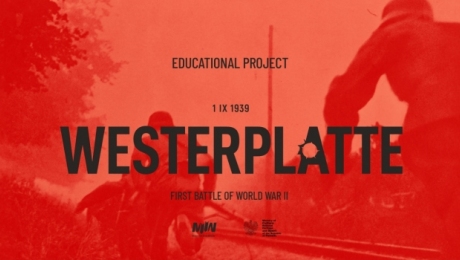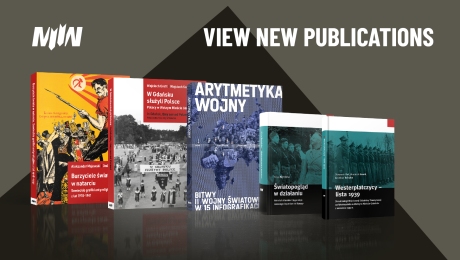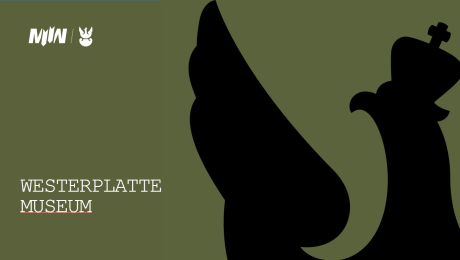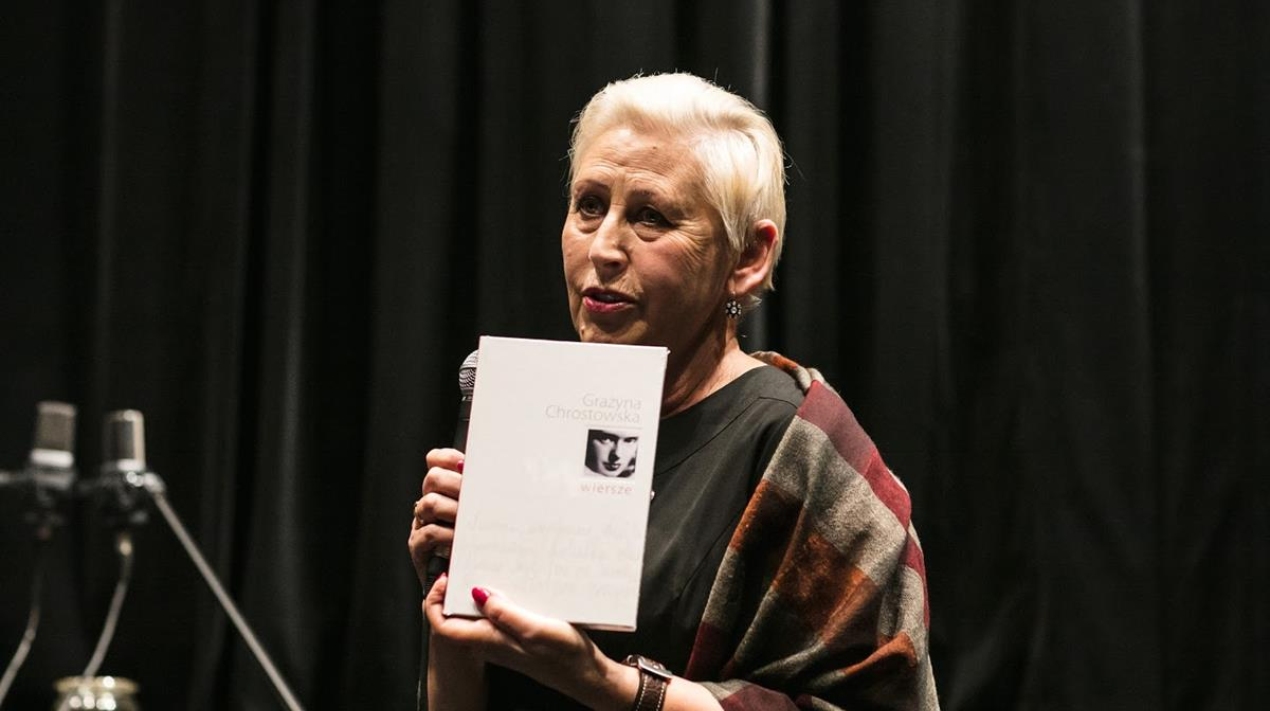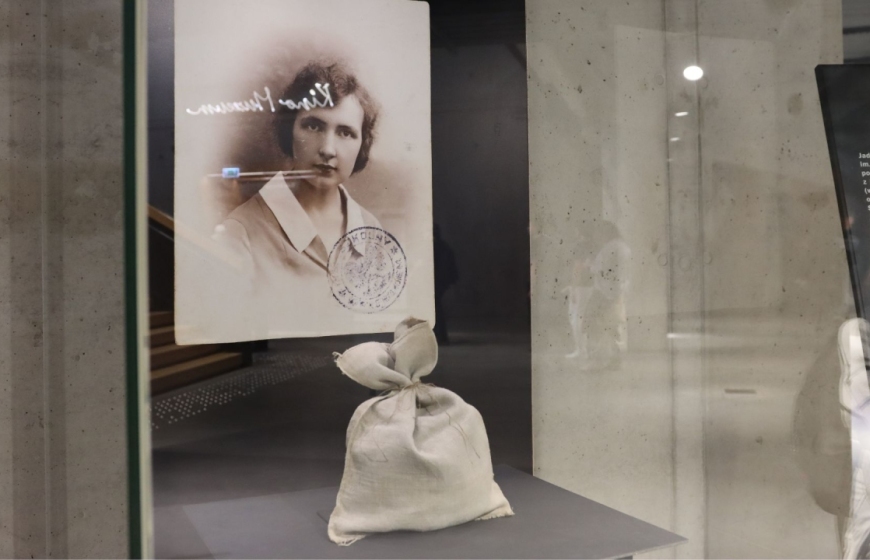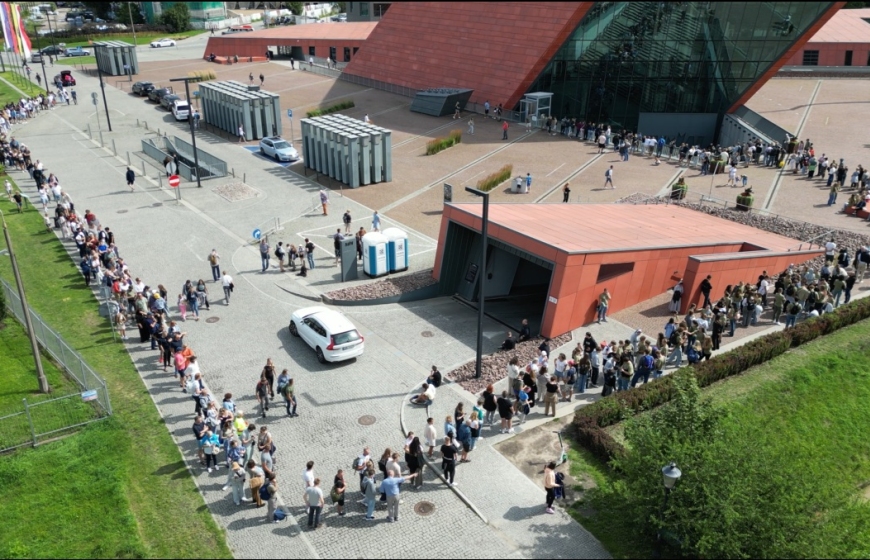An evening of poetry by Grażyna Chrostowska
In the Museum of the Second World War, an evening of Grażyna Chrostowska's poetry took place and a documentary film about the life and work of the poet "Behind the bars are green trees" directed by Magdalena and Rafał Kołodziejczyk was screened.
The meeting was opened by the Deputy Director of the Museum of the Second World War, Dr. Tomasz Gliniecki, who introduced the figure of Grażyna Chrostowska, the Polish poet, and underground resistance activist during the Second World War, to those gathered. She was arrested on 8 May 1941 and held in the "Pod Zegarem" prison and was then moved to Lublin Castle, before finally being taken to the concentration camp in Ravensbrück. She was shot in a group execution less than a year later at the age of 20.
A fictionalised documentary about the life and work of the poet was then screened. The film directed by Magdalena and Rafał Kołodziejczyk was made to coincide with the 75th anniversary of the poet's death. The documentary was created in cooperation with the “Pod Zegarem” Museum of Martyrdom in Lublin.
After the film, three artistic performances took place - in a specially arranged space - interpreting the work of the Lublin representative of the Columbian Generation.
At the end, the book Grażyna Chrostowska was presented. Poems, published by the Lublin Museum, with the support of the Ministry of Culture and National Heritage, was presented. From the introduction: "Chrostowska's poetry is an extraordinary testimony of exploration – artistic and ideological – which was conducted in extremely unfavourable conditions. The young poet developed her talent in complete isolation – without books, magazines or literary circles – her only readers were other female prisoners who, as they often recalled, valued the poetry, while at the same time considered it difficult and demanding."






